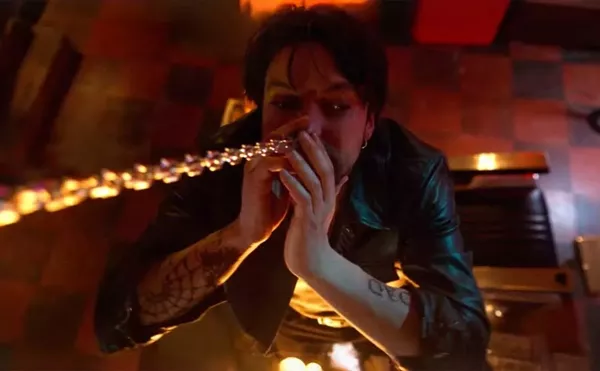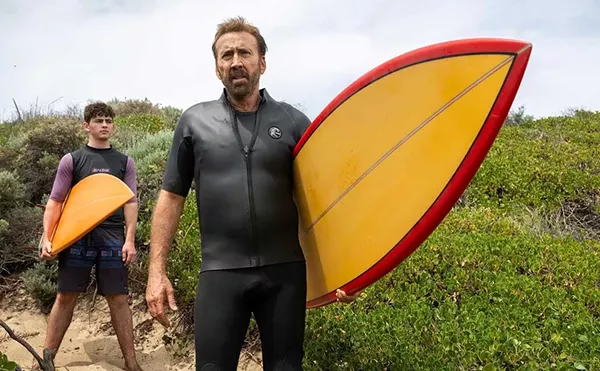
Audio By Carbonatix
[
{
"name": "GPT - Leaderboard - Inline - Content",
"component": "35519556",
"insertPoint": "5th",
"startingPoint": "3",
"requiredCountToDisplay": "3",
"maxInsertions": 100,
"adList": [
{
"adPreset": "LeaderboardInline"
}
]
}
]
The circa-1975 Grosse Pointe of writer-director Sofia Coppola’s The Virgin Suicides comes off as a cross between the affluent sterility of The Ice Storm and the frenzied conformity and repression of Picnic at Hanging Rock. All three films turn on the consequences of female desire, especially teenagers who try to reconcile societal-familial expectations with their confusing impulses.
Five girls, aged 13-17, make up the Lisbon household, along with their strict, domineering mother (Kathleen Turner) and ineffectual, bemused father (James Woods), a math teacher at the Catholic school they all attend.
The first sign of trouble comes with the suicide attempt of the youngest, Cecilia (Hanna Hall), which is soon followed by the all-out sexual rebellion of the charismatic Lux (Kirsten Dunst), who gains the attention of Trip Fontaine (Josh Hartnett), the most desired pretty boy in their social circle.
It’s the beginning of a tragic downward spiral that’s closely monitored by a group of neighborhood boys, whose unquenchable fascination with the Lisbon girls and their unhappy fate grows into a lifelong obsession. These boys serve as narrators in Jeffrey Eugenides’ novel, where the sisters are constructed via found objects (a diary, a saint card, lipstick, glitter) and fragments of collective memory.
Interestingly, Coppola chooses to maintain this male perspective, even though her strength is in portraying the desperate dreaminess of female teenagers (epitomized by their ornately overstuffed rooms). The girls serve as ciphers, the embodiment of thwarted male desires and a representation of the communal rot manifested in Dutch elm disease and a putrid, algae-clogged Lake St. Clair.
With a faux naive visual style and an excellent use of music (an atmospheric score by Air, plus well-chosen pop songs), Coppola portrays suburban adolescence as a dream state constructed from overactive – yet limited – imaginations where martyrdom seems the only real escape.
Serena Donadoni writes about film for Metro Times. E-mail her at letters@metrotimes.com.





